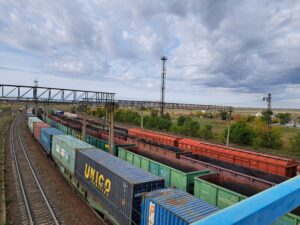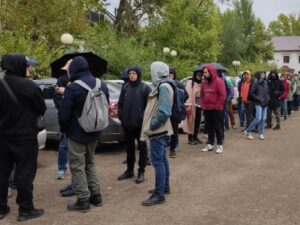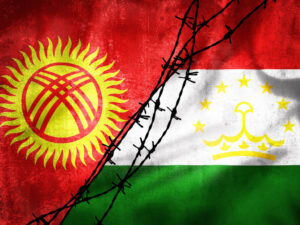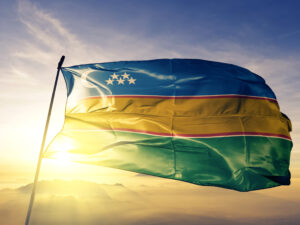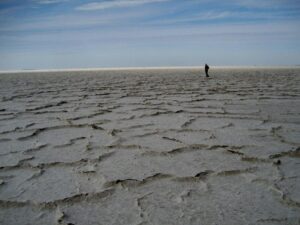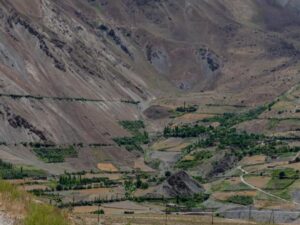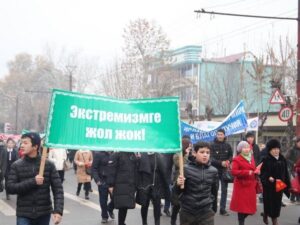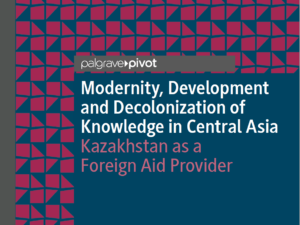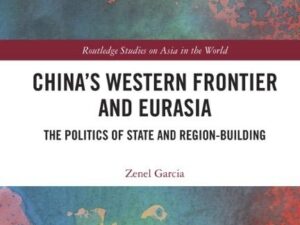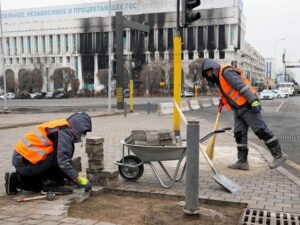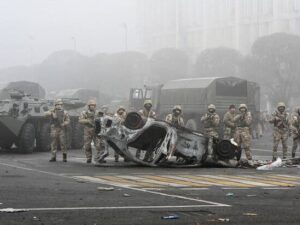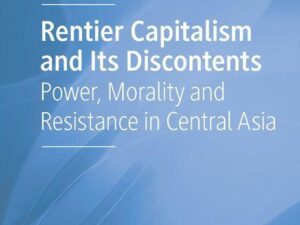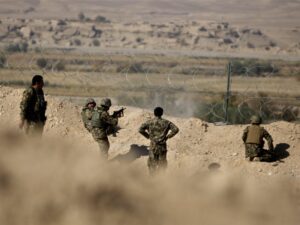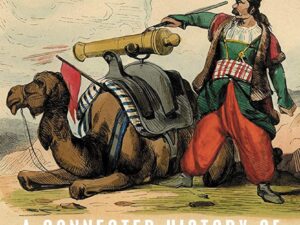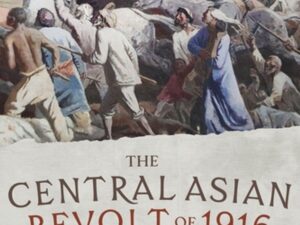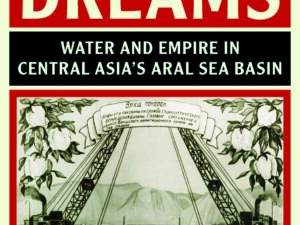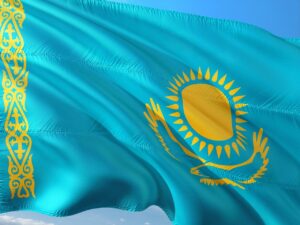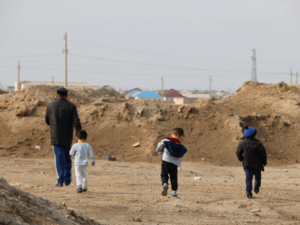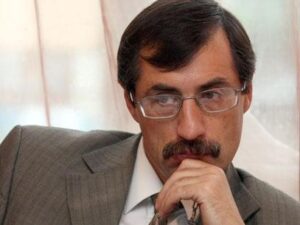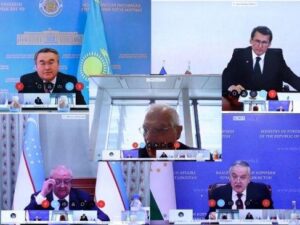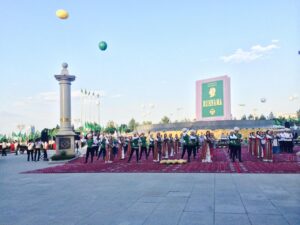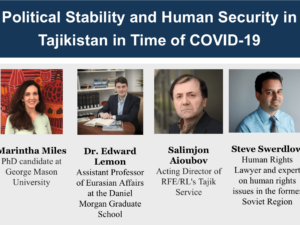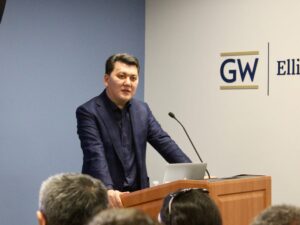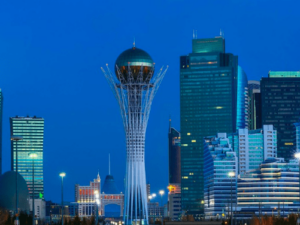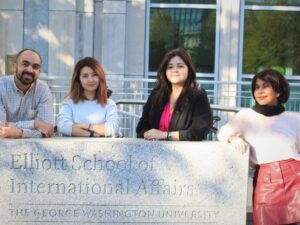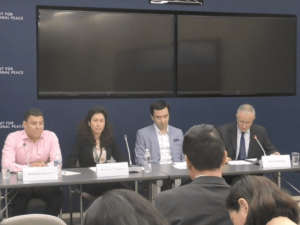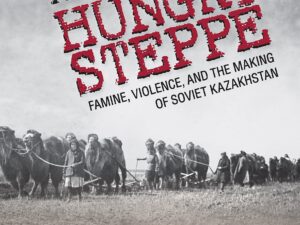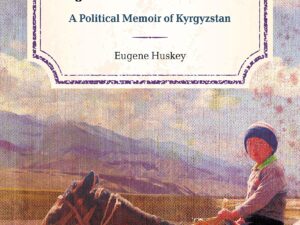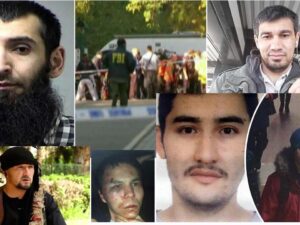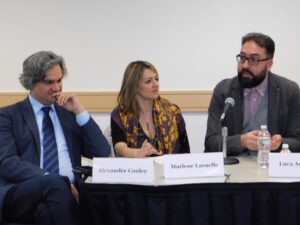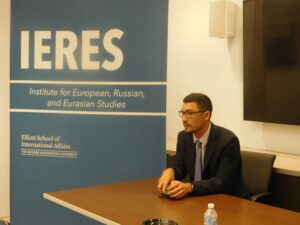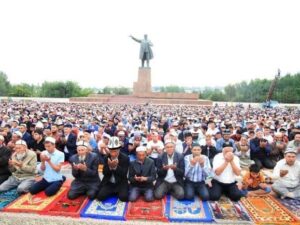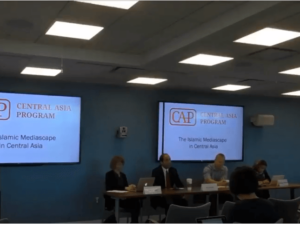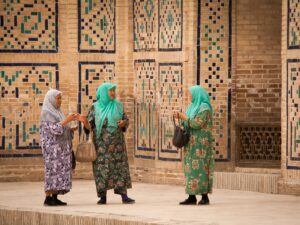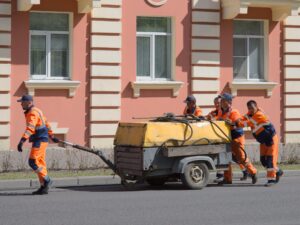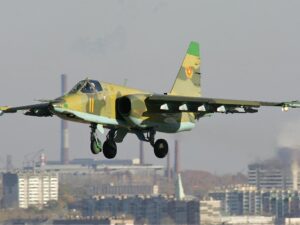
- This event has passed.
The Central Asia Security Workshop
25 March, 2013 @ 8:45 AM - 26 March, 2013 @ 12:00 PM

NATO members are exiting from Afghanistan at different speeds, dictated by pressures from their domestic public opinions. This withdrawal has re-launched debates on the security of the Central Asian region. In the years to come, the post-2014 changes in the regional landscape will intersect with domestic evolutions including changes in political leadership, in demographics, and the end of the Soviet legacy. GW’s Central Asia Program seeks to participate in the policy debate on Central Asia by providing current research on the different sources of potential insecurity in the region.
MONDAY, MARCH 25, 2013 (8.45 am – 4 pm)
8.45 am. Registration9 am. Opening Remarks
9.15-11 am. CENTRAL ASIA IN THE AFGHAN NEIGHBORHOOD: DO WE GET IT RIGHT?
Chair: Chantal de Jonge Oudraat (SIPRI-North America) and Marlene Laruelle (George Washington University)
Deconstructing the ‘Spillover’ Narrative
Deconstructing the ‘Spillover’ Narrative
Scott Radnitz (University of Washington)
Afghan Spillover Oversell: The Greater Danger of Self-Inflicted Harm in Central Asia
Afghan Spillover Oversell: The Greater Danger of Self-Inflicted Harm in Central Asia
Georges Gavrilis (Hollings Center for International Dialogue)
The Closing of Central Asia’s Borders
The Closing of Central Asia’s Borders
Sebastien Peyrouse (George Washington University)
Drug-Trafficking: Identifying the Real Challenges
Drug-Trafficking: Identifying the Real Challenges
11-11.30 am. Coffee break
11.30-1.15 pm. INTERNATIONAL LAW, GOVERNANCE, AND REGULATORY DILEMMAS
Chair: Scott Radnitz (University of Washington) and Sean Roberts (George Washington University)
Dilemmas of Democratization: The Problems of Transitioning from Authoritarian Rule in Kyrgyzstan andImplications for other Countries in the Region
Dilemmas of Democratization: The Problems of Transitioning from Authoritarian Rule in Kyrgyzstan andImplications for other Countries in the Region
Eric McGlinchey (George Mason University)
My Property, your Courts: The International Litigation of Contested Central Asian Assets
My Property, your Courts: The International Litigation of Contested Central Asian Assets
Erica Marat (American University)
Regulating Private Security Companies in Central Asia
Regulating Private Security Companies in Central Asia
Jan Harfst (UNDP Regional Bureau for Europe and the CIS)
Effective resolution of water related issues as a crucial factor for security in Central Asia
Effective resolution of water related issues as a crucial factor for security in Central Asia
1.15-2.15 pm. Lunch
2.15-4 pm. THE CURSE OF STABILITY IN CENTRAL ASIA?
Chair: David Abramson (State Department)Sarah Kendzior (Al Jazeera English)
The Crisis of Consistency in Uzbekistan
The Crisis of Consistency in Uzbekistan
Gael Raballand (Institute Choiseul, Paris)
Redistribution of oil revenues in Kazakhstan: excessive expectations from the population?
Redistribution of oil revenues in Kazakhstan: excessive expectations from the population?
Nate Schenkkan (Freedom House)
Kyrgyzstan: When Consolidation Fails
Kyrgyzstan: When Consolidation Fails
Zohra Ismail Beben (College of William and Mary)
Statecraft in Tajikistan: A blunt instrument for a fine task?
Statecraft in Tajikistan: A blunt instrument for a fine task?
TUESDAY, MARCH 26, 2013 (9.30-11.30 am)
9.30-11.30 am. ISLAM IN CENTRAL ASIA: RELIGION, POLITICS, MILITANCY AND NEW MEDIA
Noah Tucker (Registan.net)
Islamic “revival” in Central Asia: Social trend or political threat?
Islamic “revival” in Central Asia: Social trend or political threat?
Nathan Barrick (Strategic consultant, CLI Solutions)
Geostrategic factors in the Islamist militant threat to central Asia
Geostrategic factors in the Islamist militant threat to central Asia
Azizullah Ghazi (Independent Scholar)
Activities of Central Asian Islamic militant organizations on the internet and social media
Activities of Central Asian Islamic militant organizations on the internet and social media
11.30-12 pm. Wrap up





